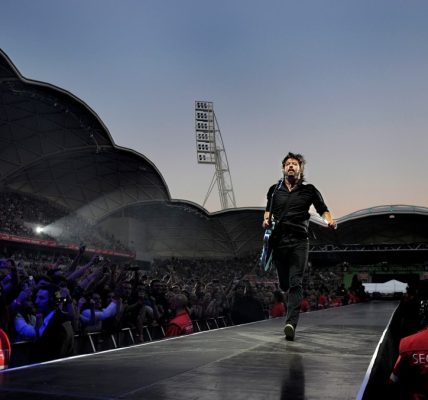Bono expressed that U2 made a wise decision to set aside their initial instincts regarding their iconic 2004 hit single ?Vertigo,? which, at its inception, lacked the necessary “unstable chemistry” that defines their sound. This track not only became a pivotal moment in the band?s illustrious journey but also served as the leading single of their acclaimed album How To Dismantle an Atomic Bomb. The song?s impact was so profound that U2 incorporated it into their setlist, both opening and closing their performances with it, demonstrating its significance in their musical legacy.
In a recent conversation with Record Collector, Bono revealed that ?Vertigo? initially began as a much more subdued piece of music, originally titled ?Native Son,? during its development with renowned producer Chris Thomas. This early version lacked the vibrancy and excitement that ultimately characterized the finished product, and Bono?s reflections reveal the transformative journey the song underwent in its evolution.
READ MORE: Discover how U2 made a powerful impact with their debut album ‘Boy’ blending punk energy and deep introspection.
?In that case, we were right not to trust our first instincts,? Bono noted. He praised Chris Thomas for his expertise with guitar sounds and vocal arrangements, recognizing his contributions to the song’s development. However, Bono felt that the initial version did not capture the explosive energy and chemistry necessary for a live U2 performance, which is critical to their reputation as a dynamic live act.
The lead producer of the album, Steve Lillywhite, played a crucial role in reshaping the song, encouraging the band to adopt a different approach. ?Steve wanted us to perform it live without any overdubs,? Bono recalled, emphasizing Lillywhite’s vision for the track, which ultimately brought out the raw energy that resonates with audiences.
Experience the Pure Joy of ‘Vertigo’: Bono’s Most Immediate Song
Bono describes ?Vertigo? as a lyrical exploration of a night out, capturing the essence of living in the moment. It stands out as the most present-tense song he has ever penned, celebrating the exhilarating experience of being social and discovering oneself amidst the vibrant atmosphere of a club. This vivid portrayal of nightlife not only resonates with fans but also encapsulates the band?s ethos of connection and spontaneity.
Lillywhite?s innovative approach aimed to immerse listeners in the experience as if they were part of the U2 performance. ?You start to sense the shape of the room,? Bono explained, highlighting how the recording captures the ambiance and energy of a live show. The mood of the band, combined with the engaging dynamics of the performance, creates a compelling listening experience that transports fans to the heart of their concerts.
He continued, ?Steve Lillywhite deserves credit for forcing our hand on that one. If you?re in a corner, he?s usually the right man to call.? This acknowledgment speaks to the collaborative spirit within U2 and the importance of having visionary producers who can elevate their music to new heights.
Explore the Most Influential Albums of 1983
In a groundbreaking year for music, genres such as pop, new wave, punk, and rock converged, creating a rich tapestry of sound that opened up new artistic possibilities.
Gallery Credit: Michael Gallucci






